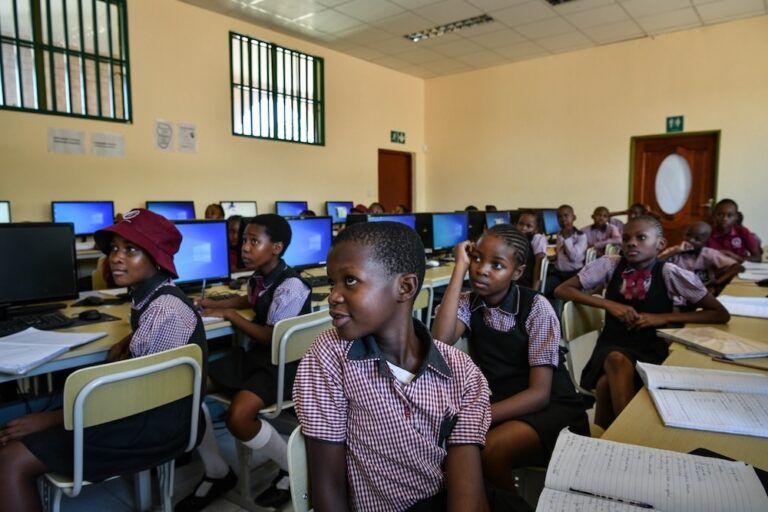(MISA/IFEX) – On February 23 1999, journalist Caitlin Davies was acquitted on charges of contempt of court after being summoned to appear in court because of an article she had written about an on-going court case. However, the journalist’s source for the article, lawyer Maame Baffour-Awuah, was sentenced to seven days in jail, but spent […]
(MISA/IFEX) – On February 23 1999, journalist Caitlin Davies was
acquitted on charges of contempt of court after being summoned to appear
in court because of an article she had written about an on-going court
case. However, the journalist’s source for the article, lawyer Maame
Baffour-Awuah, was sentenced to seven days in jail, but spent only one
night in jail after successfully applying for bail on 24 February. She
is currently appealing her sentence. Davies’s editor, Sechele Sechele,
who came to court to give moral support to the journalist, was ordered
by the judge to take the stand even though he had not been summoned or
charged.
** For previous cases involving Davies see IFEX alerts of 2 June 1998,
16 December, 9 December and 21 April 1997 and 3 September 1996**
On 9 December 1998, Davies was summoned by Justice I. R. Aboagye to
appear before his court in Lobatse following an article Davies wrote and
which appeared in the “Mmegi” newspaper on 4 December 1998. The article
entitled, “Murder Case to Make Legal History”, reported on a trial in
the Lobatse High Court in which one Sephonono Harvey was charged with
murdering her husband. The Metlhaetsile Women’s Information Centre had
decided to defend Harvey and to plead battered woman’s syndrome (the
first time this defence was being used in Botswana). The article quoted
Baffour-Awuah, a lawyer from
Metlhaetsile, saying that Harvey had been the victim of ten years of
abuse, and explaining what battered woman syndrome was.
Davies and Baffour-Awuah, who received the same summonses, were ordered
to “give cause why they should not be held in contempt of court.”
During their appearance on 23 February, Davies, Baffour-Awuah and
Sechele were grilled for over an hour. Davies was asked, among other
things, about the article, whether she was the author, and why she had
reported “facts” that had yet to be established in court.
In his judgment, Justice Aboagye, said he found that Davies had had no
intention of prejudicing the proceedings of the trial by interviewing
Baffour-Awuah. He said he felt that Davies, in interviewing
Baffour-Awuah, who was not the defence attorney but whose firm was
engaged in the defence of the accused, believed that she was talking to
the right person and that the facts given to her by Baffour-Awuah were
the true facts of the case.
However, in sentencing Baffour-Awuah to seven days, he said that as an
attorney she knew that the trial was in progress and that the published
facts were still at issue and that their publication would be highly
prejudicial to the proceedings. Because she was not the attorney
directly defending the accused and had never attended the trial, Justice
Aboagye said she therefore had no justification in telling the press her
own version of the facts in the case as if those facts had either been
confirmed by the court or were not at issue. The judge dismissed an
apology, which Baffour-Awuah had offered to court, as “half-hearted.”
Sechele was called to the stand after the judged waved a copy of the
newspaper in the air and asked, “Where is the editor of this?” He
promptly stood up and identified himself. The judge initially began to
question him, but then postponed his case to 25 February after Sechele
pointed out that he did not have a lawyer. He was eventually discharged
and acquitted also on a charge of contempt.
In an another incident that occurred on 23 February, during the actual
murder trial, the judge reportedly objected to the t-shirt Harvey was
wearing, which said “Stop Violence Against Women”. He said this was
defiant and showed that she was not really sorry for killing her
husband. She explained that she could neither read nor write and that a
woman had leant it to her.


